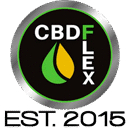Delta 11 THC vs. Delta 9 THC: Understanding the Differences
Introduction to Delta 11 THC and Delta 9 THC Delta 11 THC (tetrahydrocannabinol) and Delta 9 THC are two distinct cannabinoids derived from…
Introduction to Delta 11 THC and Delta 9 THC
Delta 11 THC (tetrahydrocannabinol) and Delta 9 THC are two distinct cannabinoids derived from the cannabis plant, garnering significant attention in the cannabis industry and among consumers. As cannabinoids, these compounds interact with the endocannabinoid system within the human body, influencing various physiological and psychological functions.
Delta 9 THC is the most widely recognized and researched form of THC, known for its psychoactive effects that produce the characteristic “high” associated with marijuana use. Chemically, Delta 9 THC is structured with a double bond on the ninth carbon atom of the THC molecule, hence its name. This configuration affects its interaction with cannabinoid receptors, primarily CB1 receptors in the brain, leading to the wide range of effects, from euphoria and relaxation to altered sensory perception.
On the other hand, Delta 11 THC is a relatively new and lesser-known variant. It shares a similar chemical structure with Delta 9 THC but features a double bond on the eleventh carbon atom instead. This seemingly small modification can significantly alter its behavior and interaction with the body’s receptors. While research on Delta 11 THC is still in the early stages, preliminary observations suggest it may offer unique effects distinct from those of Delta 9 THC.
The burgeoning interest in various THC analogs stems from the quest to explore new therapeutic potentials and recreational experiences. The cannabis industry’s keen focus on cannabinoids like Delta 11 THC and Delta 9 THC is driven by the potential to diversify product offerings, meet consumer demand, and comply with evolving legal frameworks. This blog aims to dissect the differences and similarities between Delta 11 THC and Delta 9 THC, including their effects, legality, and implications for users.
Chemical Structure and Extraction Methods
Delta 11 THC (delta-11-tetrahydrocannabinol) and Delta 9 THC (delta-9-tetrahydrocannabinol) share a close chemical relationship, with their structures differing primarily in the positioning of a double bond within their carbon chains. Delta 9 THC has the double bond located at the ninth carbon atom, whereas Delta 11 THC features this bond at the eleventh carbon atom. This seemingly minor difference significantly influences their interaction with the body’s endocannabinoid system, specifically with the CB1 and CB2 receptors. The placement of the double bond alters the three-dimensional shape of the molecules, impacting their binding affinity and, consequently, their psychoactive and physiological effects.
Delta 9 THC is well-documented for its high affinity to the CB1 receptors primarily found in the central nervous system, which contributes to its pronounced psychoactive effects. Conversely, Delta 11 THC, though less researched, is noted to interact slightly differently with these receptors due to its unique structure. Preliminary studies suggest that Delta 11 THC may possess distinct psychoactive properties and therapeutic potentials compared to Delta 9 THC, albeit with less intensity.
The extraction methods for both cannabinoids typically involve sophisticated techniques. Delta 9 THC is commonly extracted using methods such as supercritical CO2 extraction, ethanol extraction, and hydrocarbon extraction. These methods have evolved, increasing their efficiency and purity. Recent advancements like closed-loop systems and precision temperature controls have made these extractions more effective and safer.
Delta 11 THC, being a more recently explored cannabinoid, often requires more specialized extraction approaches. Advanced chromatography techniques are frequently employed to isolate Delta 11 THC from cannabis plant extracts. This method ensures higher purity by separating it from closely related cannabinoids and other plant compounds. Additionally, innovations in extraction technology, including molecular distillation and advanced solvent recovery systems, have significantly improved the yield and quality of Delta 11 THC.
According to academic sources on cannabinoid chemistry, these advancements not only optimize the extraction process but also contribute to a better understanding of the unique properties and potential applications of each cannabinoid. As research progresses, the methods for extracting and purifying cannabinoids like Delta 11 THC and Delta 9 THC will continue to refine, paving the way for new therapeutic and recreational products.
Psychoactive Effects and Potency
Delta 11 THC, a relatively lesser-known cannabinoid, has been garnering attention for its potent psychoactive effects, often compared to Delta 9 THC, the primary psychoactive component found in cannabis. To evaluate the differences, it’s crucial to examine both scientific findings and anecdotal experiences. Studies suggest that Delta 11 THC has a higher psychoactive potency than Delta 9 THC, leading to more intense and sometimes longer-lasting effects. This aligns with user reports that often describe Delta 11 THC as providing a stronger euphoric sensation and a deeper sense of relaxation.
In contrast, Delta 9 THC, the most abundant and well-studied cannabinoid, is known for its balanced psychoactive profile, which offers a mix of euphoria, relaxation, and sometimes mild hallucinations. Research indicates that the effects of Delta 9 THC peak more quickly and taper off faster compared to Delta 11 THC. Users frequently report that Delta 9 THC provides a more predictable experience, making it a popular choice for both recreational users and medical patients seeking therapeutic effects with manageable psychoactivity.
Scientific studies have shown that the difference in psychoactive effects between Delta 11 THC and Delta 9 THC can be attributed to their molecular structures and the way they interact with the endocannabinoid system. Delta 11 THC binds more effectively to CB1 receptors in the brain, which may explain its heightened effects. Furthermore, anecdotal evidence points to Delta 11 THC having longer-lasting effects, making it potentially more attractive for users seeking prolonged relief from symptoms or a sustained recreational experience.
Overall, while Delta 9 THC remains the staple in cannabis use, Delta 11 THC is emerging as a potent alternative, providing unique benefits that cater to specific preferences and needs. Differences in user experiences highlight the importance of individual tolerance and the desired outcomes when choosing between these two cannabinoids.
Medical and Therapeutic Benefits
Delta 9 THC (tetrahydrocannabinol) has long been recognized for its significant medical and therapeutic benefits. It is widely used in the treatment of conditions such as chronic pain, multiple sclerosis, and chemotherapy-induced nausea and vomiting. Numerous clinical studies support its efficacy in alleviating these symptoms. For example, research published in the Journal of Clinical Oncology highlights Delta 9 THC’s ability to reduce nausea and improve appetite in cancer patients, enhancing their overall well-being during treatment.
On the other hand, Delta 11 THC, a lesser-known cannabinoid, is gaining attention for its potential in the medical cannabis field. Although still in the early stages of research, preliminary studies and patient testimonials suggest that Delta 11 THC may offer similar, if not superior, benefits compared to Delta 9 THC. Some patients have reported experiencing significant relief from anxiety and sleep disorders after using Delta 11 THC. According to anecdotal evidence, its psychoactive properties are less intense than Delta 9 THC, making it a more attractive option for those who seek therapeutic effects without a strong high.
Ongoing research is crucial for understanding the full scope of benefits offered by Delta 11 THC. One emerging area of interest is its potential in neurological conditions. For instance, animal studies have indicated that Delta 11 THC could have a neuroprotective effect, possibly offering a novel treatment for neurodegenerative diseases like Alzheimer’s and Parkinson’s. Experts in medical cannabis are optimistic about these findings but stress the need for more extensive clinical trials to establish definitive conclusions.
Cannabidiol (CBD) and tetrahydrocannabinolic acid (THCA) are two other cannabinoids often discussed in the context of medical use. While CBD is non-psychoactive and widely lauded for its anti-inflammatory and anti-anxiety properties, THCA is noted for its potential in reducing seizures and inflammation. The diversity in cannabinoid profiles underscores the complexity and promise of cannabis as a multifaceted therapeutic agent.
In sum, both Delta 9 THC and Delta 11 THC offer unique medical and therapeutic benefits. Ongoing research and clinical trials will continue to elucidate these cannabinoids’ roles, potentially revolutionizing their use in treatments for various ailments and conditions.
Side Effects and Safety Profiles
When examining the safety profiles of Delta 11 THC and Delta 9 THC, it is crucial to consider the potential side effects and risks associated with each. Both cannabinoids can produce psychoactive effects, but their intensity and occurrence may vary among users.
Delta 9 THC is well-documented and widely studied in scientific literature. Common side effects reported include anxiety, paranoia, dry mouth, dizziness, and impaired motor coordination. These effects can be more pronounced in first-time users or if consumed in high doses. Additionally, prolonged use of Delta 9 THC has been linked to tolerance and dependence, necessitating cautious and measured use.
Delta 11 THC, although relatively new to the market, is reported to produce similar psychoactive effects as Delta 9 THC. Anecdotal evidence suggests that users may experience paranoia, dry mouth, and altered sensory perception. However, comprehensive scientific studies on Delta 11 THC’s side effects remain limited, warranting further research to determine its full safety profile. Due to its novelty, users should exercise caution and start with lower doses to gauge individual tolerance levels.
Both Delta 11 THC and Delta 9 THC interact with the endocannabinoid system, influencing mood, perception, and cognitive functions. Individuals with pre-existing mental health conditions or those prone to anxiety should be particularly careful, as cannabinoids can exacerbate symptoms. Additionally, both cannabinoids can have contraindications for users with certain medical conditions or those taking specific medications. Consulting a healthcare professional before using any THC variant is recommended to avoid adverse reactions.
Dosing is a critical factor in managing side effects and ensuring safe use. A gradual approach, starting with minimal amounts and increasing incrementally, can help users find their optimal dose while minimizing the risk of adverse effects. Scientific studies and health advisories emphasize the importance of responsible consumption and staying informed about individual cannabinoid responses.
Overall, while Delta 11 THC and Delta 9 THC share similar safety concerns, the lack of extensive research on Delta 11 THC highlights the need for cautious use. By understanding the potential side effects and respecting dosing guidelines, users can make informed choices about their cannabinoid consumption.
Legality and Regulatory Status
The legal landscape surrounding Delta 11 THC and Delta 9 THC can be complex and varies significantly across different regions. In the United States, Delta 9 THC is classified as a Schedule I controlled substance under the Controlled Substances Act, meaning it is illegal at the federal level. However, several states have enacted their own laws permitting the medical and recreational use of cannabis, including Delta 9 THC, creating a patchwork of regulations. As for Delta 11 THC, it has not yet been explicitly addressed by federal law, leaving its legal status somewhat ambiguous and dependent on state-specific legislation.
In Canada, the Cannabis Act of 2018 legalized the recreational use of cannabis, which includes both Delta 9 THC and potentially Delta 11 THC, given their chemical similarity. All products containing THC are subject to the same stringent regulatory framework, including proper labeling, licensing, and distribution channels. The Canadian approach focuses on ensuring product safety and preventing underage consumption.
In Europe, the legal status of THC varies by country. For example, the Netherlands is known for its relatively lenient stance on cannabis, permitting the sale of Delta 9 THC in regulated coffee shops. Conversely, countries like France and Sweden maintain strict prohibitions on any substance containing THC. The European Union does not have unified legislation on THC, allowing each member country to set its own rules and regulations.
Recent trends indicate a gradual shift towards relaxing THC restrictions in various regions. For instance, Germany recently announced plans to legalize recreational cannabis use, which would include Delta 9 THC. Such moves are often driven by increasing public support, potential economic benefits, and evolving perspectives on drug policy and harm reduction. However, it is essential for consumers and businesses to stay informed about the specific laws in their jurisdictions, as regulatory changes continue to unfold.
Consumer Products and Market Trends
The market for Delta 11 THC and Delta 9 THC has experienced rapid growth, driven by a diverse range of consumer products tailored to varying preferences. Among the most popular are edibles, vapes, tinctures, and topicals. Edibles, such as gummies and chocolates, offer a discreet and easily consumable option that has found favor among both recreational and medicinal users. Vapes, known for their quick onset and convenience, continue to dominate the preferences of consumers seeking immediate effects. Tinctures, typically used sublingually, provide a versatile option that allows precise dosing and can be incorporated into various wellness routines. Topicals, including creams and balms, are gaining popularity for their localized pain relief and anti-inflammatory properties.
Market trends indicate a growing consumer interest in these cannabinoid products. According to recent market analysis, sales of Delta 9 THC products remain robust, while Delta 11 THC is emerging as a new player capturing market share. A significant trend is the rise of bespoke and premium offerings, with consumers increasingly seeking high-quality and potent products. Infused beverages and culinary uses of cannabinoids are innovative niches showing promising growth. Additionally, the expanding legalization landscape further propels the market, bringing new consumers into the fold.
Data from leading market analysis reports highlight that consumers are not only seeking traditional forms of these cannabinoids but are also highly interested in new product innovations. For instance, Delta 11 THC-infused edibles are being developed to include a wider variety of flavors and functional ingredients, such as vitamins and adaptogens, enhancing their appeal. Likewise, Delta 11 and Delta 9 THC hybrid products are being explored to offer balanced effects suited for different consumer needs.
For more in-depth insights into the cannabinoid market, reputable sources such as [Market Analysis Report](https://www.marketanalysisreport.com) and [Business News](https://www.businessnews.com) provide comprehensive data and trend analyses. These evolving trends underscore the dynamic nature of the cannabis market and the ongoing innovation within the industry, ensuring a rich array of choices for consumers.
Conclusion: Making an Informed Choice
As the cannabis industry continues to expand, it is vital to comprehend the nuanced differences between Delta 11 THC and Delta 9 THC. These cannabinoids, while sharing similar molecular structures, exhibit distinct psychoactive and therapeutic properties. Delta 9 THC, traditionally recognized for its strong psychoactive effects, remains the most prevalent and well-studied cannabinoid. Contrarily, Delta 11 THC, although less familiar, is gaining attention for its unique profile and potentially different impacts on users.
When deciding between Delta 11 THC and Delta 9 THC, several factors merit consideration. Individual tolerance levels, desired effects, and specific medical conditions all play crucial roles in determining the appropriateness of either cannabinoid. While some users may prefer the well-characterized effects of Delta 9 THC, others may seek out the novel experiences offered by Delta 11 THC. Additionally, the varying legal status of each cannabinoid across regions further underscores the importance of informed decision-making.
Healthcare professionals serve as invaluable resources for individuals navigating these choices. Consulting with a healthcare provider can help ensure safe and effective use of cannabinoids, particularly for those with underlying health conditions or those currently taking other medications. Together, patients and providers can develop personalized strategies that align with therapeutic objectives and mitigate potential risks.
Staying informed through credible, evidence-based sources is also paramount. The rapidly evolving nature of cannabinoid research necessitates continual education. For further reading, the following websites offer reliable and up-to-date information on Delta 11 THC, Delta 9 THC, and other cannabinoids:







